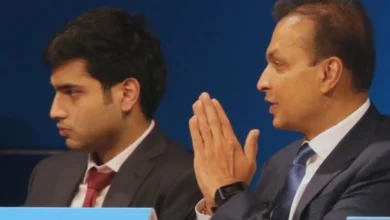“Things Are Going To Get Worse For The Financial System” – Warns RBI For The First Time With Numbers
COVID-19 has batted the global economy causing the worst recession since the Great Depression of the 1930’s. It will be a new economy where many areas of the economy won’t go back to the level of output that they have thought. If you are a poor country that doesn’t have the capacity to provide the kind of fiscal and monetary support on a scale that advanced economies have done the cost is going to be huge but even within the advanced world, it’s interesting that countries which have not lockdown had the same worse financial effect. Sweden stands out as the country that essentially not had a lockdown has seen its economy shrink pretty much by the same amount as Denmark right next door, which had a much tougher lockdown and that’s partly because people behave in a way which reduces the economic output. The relationship between the two will evolve depending on how the government handles things and is perceived to handle things.
RBI or the central bank has sounded the warning sound once again, starting with the June edition of their financial stability report, RBI has said things are only going to worsen for the banking system which is why they have called for reforms as well. Firstly they have said that the NPA will only worsen. From the level of 8.5 % in March 2020 there is a possibility the gross NP for a gross scheduled commercial bank may increase to 12.5 % in March 2021, that’s their baseline scenario and they have said that their ratio may increase to 14.7% in a severely stressed scenario. This is the First time the RBI has highlighted in terms of numbers, how things could become for the financial setting and which is why they have said perhaps the time is right for reforms. We also heard from the government that privatization is something they are looking to undertake for the financial system, for the banking system. Having said that the report also highlights that current dispensary regulation that has been given now to the various banks during the COVID scenario whether you look at loan moratorium or the deferment of interest payment is only going to ruin the financial health of banks going forward. RBI has once again said that to improve the bank’s ability to wither the COVID storm, it is important that banks look proactively augmenting their capital and improving their resilience.

Something, The RBI Governor Shaktikanta Das has alluded to, during the 7th SBI, he said that banks need to do a COVID stress test and call for building buffers as well. Not just banks but the financial stability report also says that mutual funds may also be looking at improving their liquidity framework to contain spill work. We have currently seen the post over redemption by the mutual fund industry undergoing a lot of stress due to excess volatility in capital markets. Once again RBI has highlighted what needs to be done in terms of increasing liquidity and building buffers for the mutual fund’s industry as well. In fact, the RBI has said that in terms of macroeconomic risks to growth fiscal keeping facilities are perceived to be as very high, there is also a lot of risk aversion in the market at the demand-based lackluster. The government has been undertaking a whole lot of steps and we have heard the finance minister Nirmala Sitaram saying with good respect to the government and the intervention of the government can look at in the days to come. Besides that, the financial stability report has said that there are critical sectors like real estate, constructions that could face some pressure due to COVID 19. And they said that they are seeing a bleak recovery over how things will get back to normal for these sectors, coming in at a time when we have heard from the government at an advanced stage with respect to a one-time restructuring scheme as well.
Economic effects largely depend on medical but then there is a question of which particular industry is going to be affected most by the current situation. The sectors that could be the worst hit are tourism. Tourism seems to be the clear category where at least one year’s tourism economy is going to be very hard and it might go longer if the industry cant adapts if the vaccine isn’t found. And then the places where people work closely and in confined conditions like some of the government industries where there is an importing and exporting sector which will face major setbacks. Industry and work require people to be densely packed. The countries that don’t have the capacity to borrow and to cushion for their citizens like the developing countries are in a danger zone. Countries that are indebted, countries that have to rely on dollar borrowing for them it’s really quite hard the situation we are going to have. Quite often it’s the same countries that are particularly hit because there is no tourism or because it’s natural resource exporter prices have fallen and at the same time has a heavy debt burden. The countries that are in tougher positions are the emerging economies whose exports have been hit that are reliant on tourism and that which have a very big debt burden.
In India 2 out of 5 restaurants have shut permanently, 3 out of 10 factories closed permanently. One of the very wrong conclusions to draw from this would be countries to put the drawbridge and say that the only way to safe and resilient is to produce everything at home and to end globalization. One of the lessons from the pandemic is there is a need to diversify the supply chains and need to rethink the aspects of globalization. If we take this decision to say that globalization is a bad idea and we need to put up the drawbridge to a more autarkic system that the world would be a lot worse off. It’s an irony that the thing about the pandemic is it requires a global response and no more so in finding medicines and vaccines and then distributing and manufacturing them and ensuring the best knowledge about treatment. The best protection against the pandemic is a globalized system. Indian finance economy is trying to manage everything but due to having a large population the hit is being worsened and there is also a fear of people being pushed to the poverty line due to this pandemic. With lockdown now being taken down, as country slowing turning into normal in spite of the rise in COVID cases each day the government of India is trying to hold all the pieces in every sector together but if right measures are not taken, they won’t be able to hold it any longer.




